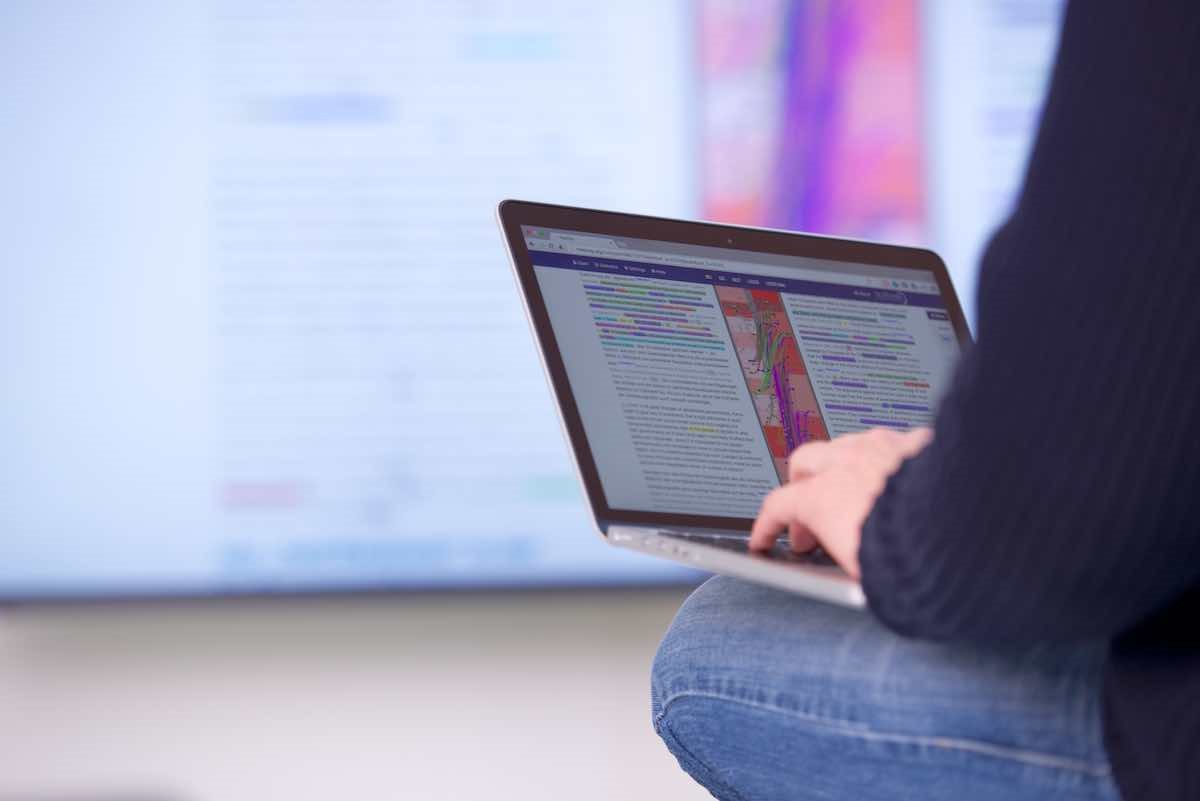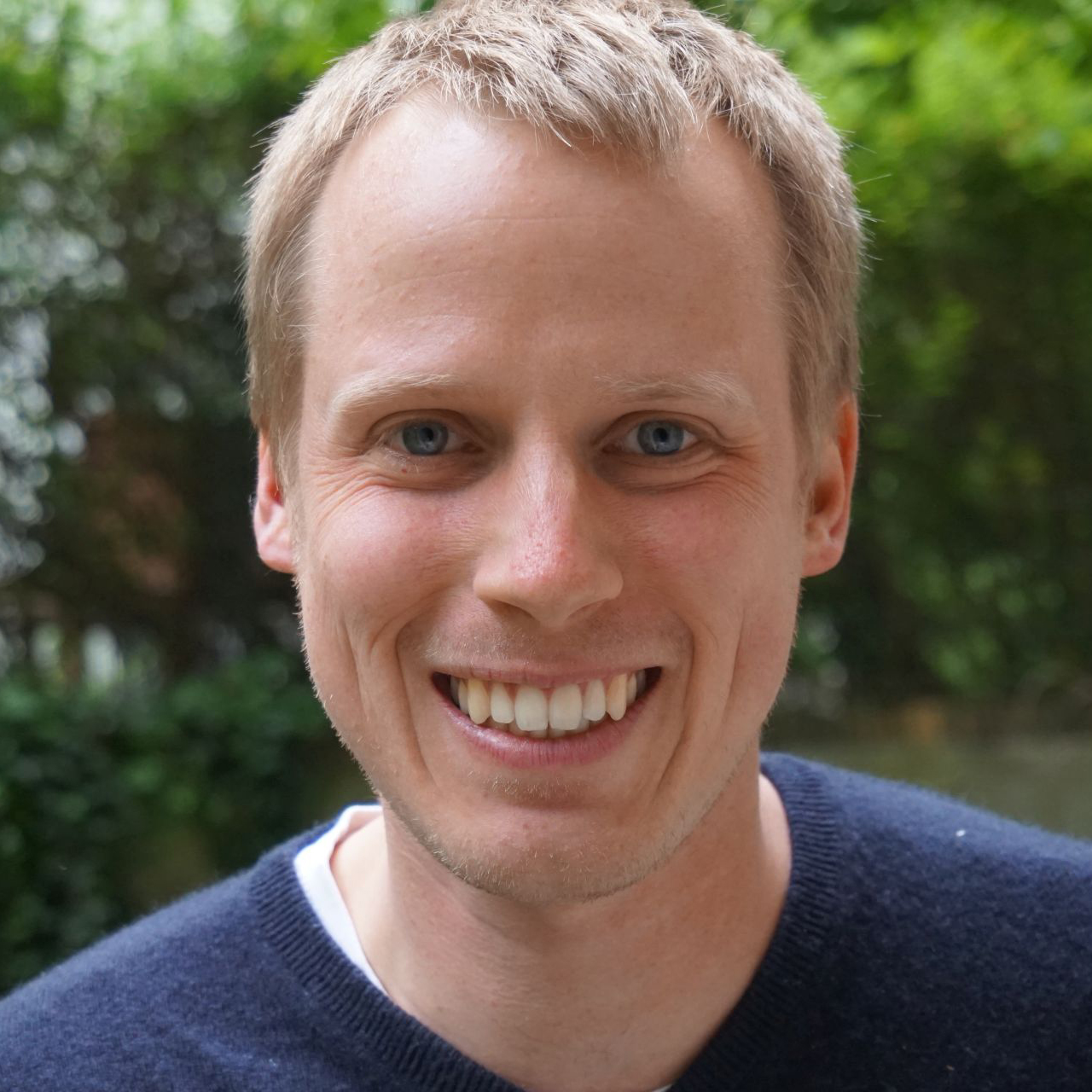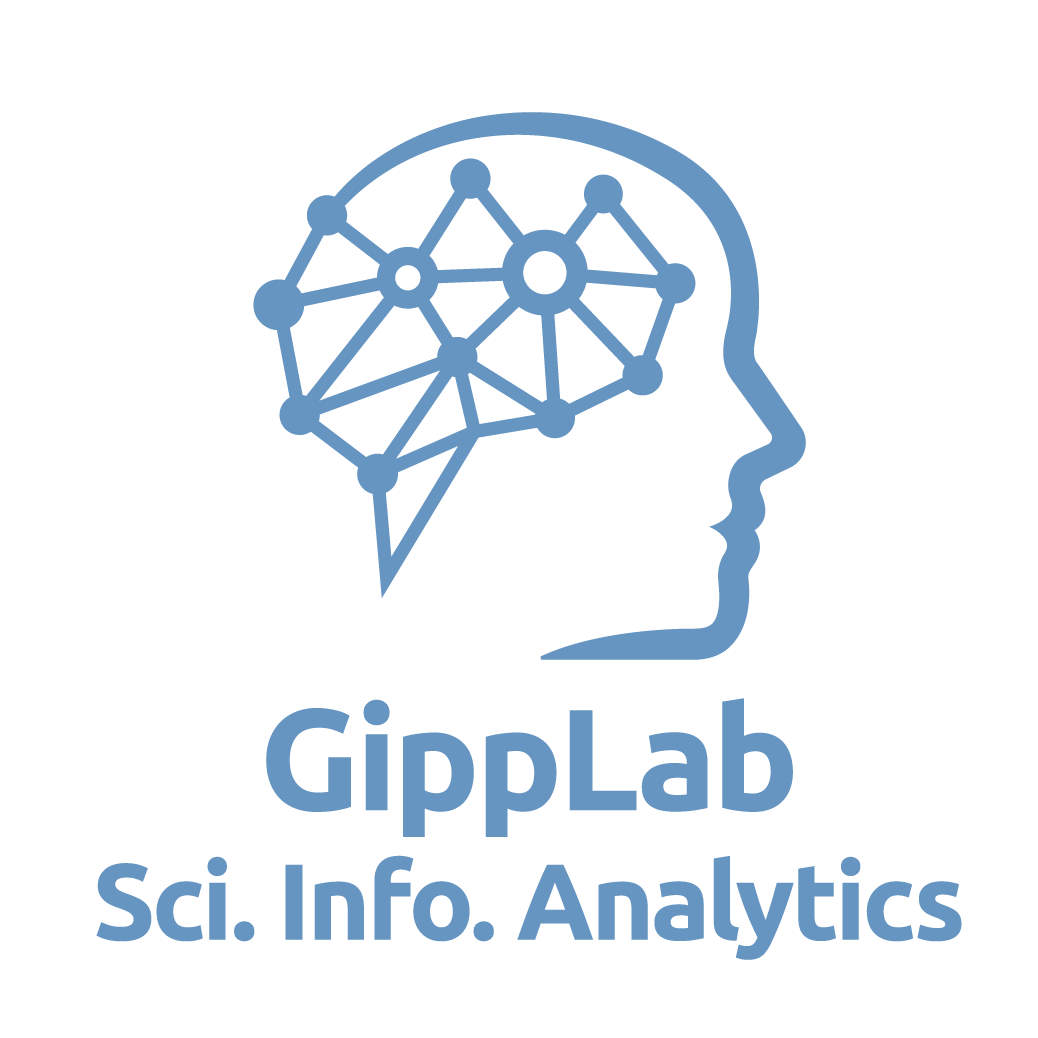Bachelor’s and Master’s Projects
Are you looking for an interesting bachelor’s or master’s project related to one of the following research areas?
- Data Science & Machine Learning
- Information Analysis & Visualization
- Information Retrieval (e.g., Wikipedia, Mathematics, News)
- Natural Language Processing
- Blockchain-based application development
- Digital Libraries & Recommender Systems
- Web Engineering

Great! Let’s meet for a coffee and talk about it!
You can find current topics offered by group members in the table below. In the linked PDF document, you can find the contact details of the supervisor for each project. Please don’t hesitate to contact them with your questions.
We recommend combining a seminar, project, and thesis for the best-possible results. For details, read the section “Recommended Graduation Path” on our teaching page. However, successfully completing a standalone thesis in our group is also possible.
Projects by the GippLab Team & Collaborators
Navigate the pdf to see the available projects.
FAQ
I heard that your group provides a Wiki with tips on how to write a thesis. Where can I find it?
See Scientific Writing and our Wiki page.
How can I learn more about the projects you offer?
Please contact the advisor of the topic(s) you’re interested in. Whether you’re interested in one of our proposals or already have an idea, we’ll find a topic that fits your interests.
Would it be possible to work on a project / thesis as a team?
Yes, you can work together on a project, but the contributions of each team member must be separated. For the project, “separated” means that each member must address their programming subproject. For the thesis, “separated” means that each member addresses his/her research questions and submits an individual thesis. If chapters contain contributions of the other team members, this needs to be clearly acknowledged, e.g., in a footnote in each affected chapter.
Can I work on my master’s thesis with you, even though I didn’t participate in one of your seminars or projects before?
Yes, however, this is not recommended.
Do you offer paid HiWi positions to students working on a project or thesis?
Yes, students working on specific topics can be appointed to a paid HiWi position. We are happy to discuss the eligible topics and other details during a personal meeting.
Would it be possible to complete a project/thesis abroad?
Yes. Particularly, we offer, among others, paid internships at the National Institute of Informatics, Tokyo, and other places. Browse through our Students Corner for more information.
Can I suggest my project idea?
Absolutely! In this case, please contact one of the supervisors of the above-listed projects or Norman Meuschke.
Students’ Feedback
Malte Schwarzer
I worked with Professor Gipp during my bachelor thesis. Building upon the results of my thesis, Prof. Gipp and I collaboratively wrote and published a research paper at the Joint Conference on Digital Libraries. I was given the opportunity to attend the conference and present the paper at the Rutgers University, Newark, which is part of the New York metropolitan area. Participating in the conference was a great opportunity for me to get to know the scientific community and learn about many interesting research projects. I could also spend some days exploring New York City after the conference had ended. Transforming my work into a research paper that received positive feedback at a conference has been a very rewarding experience and motivated me to pursue a Ph.D.

Paul Stüber
I collaborated with Prof. Gipp’s group during an internship at the National Institute of Informatics in Tokyo. I worked on improving the detection capabilities of the CitePlag system. The project was very intriguing and working in Japan was a great experience. The research on semantic similarity detection fascinates me. I am considering pursuing a Ph.D. to continue working in that field.

Julian Riediger
I compiled my master’s thesis, supervised by Bela Gipp, on algorithms to identify influential work in academic documents. I completed large parts of the thesis during a research stay at the University of California, Berkeley. I enjoyed working with Bela Gipp and Norman Meuschke on a daily basis and highly appreciate the valuable input they provided for my thesis. After my graduation, I returned to California to start a job at a tech company in San Francisco.

Selected Completed Theses
-
![[PDF]](https://gipplab.org/wp-content/plugins/papercite/img/pdf.png) C. L. Luebbers, “Enhancing Paraphrase Type Generation: The Impact of DPO and RLHF Evaluated with Human-Ranked Data,” Master Thesis, University of Göttingen, 2025.
C. L. Luebbers, “Enhancing Paraphrase Type Generation: The Impact of DPO and RLHF Evaluated with Human-Ranked Data,” Master Thesis, University of Göttingen, 2025.
[Bibtex]@mastersthesis{Luebbers2025, title = {Enhancing Paraphrase Type Generation: The Impact of DPO and RLHF Evaluated with Human-Ranked Data}, author = {Luebbers, Christopher Lee}, year = 2025, address = {University of G\"{o}ttingen}, topic = {nlp} } -
![[PDF]](https://gipplab.org/wp-content/plugins/papercite/img/pdf.png) L. B. Kaesberg, “Decision Protocols in Multi-Agent Large Language Model Conversations,” Master Thesis, Goettingen, Germany, 2024.
L. B. Kaesberg, “Decision Protocols in Multi-Agent Large Language Model Conversations,” Master Thesis, Goettingen, Germany, 2024.
[Bibtex]@mastersthesis{Kaesberg2024, title = {Decision Protocols in Multi-Agent Large Language Model Conversations}, author = {Kaesberg, Lars Benedikt}, year = 2024, month = 12, address = {Goettingen, Germany}, school = {University Goettingen}, topic = {nlp} } -
![[PDF]](https://gipplab.org/wp-content/plugins/papercite/img/pdf.png) V. Domazetoski, “Enhancing Ecological Knowledge Discovery Using Large Language Models,” Master Thesis, University of Göttingen, 2024.
V. Domazetoski, “Enhancing Ecological Knowledge Discovery Using Large Language Models,” Master Thesis, University of Göttingen, 2024.
[Bibtex]@mastersthesis{Domazetoski2024, title = {Enhancing Ecological Knowledge Discovery Using Large Language Models}, author = {Domazetoski, Viktor}, year = 2024, address = {University of G\"{o}ttingen}, topic = {nlp} } -
![[PDF]](https://gipplab.org/wp-content/plugins/papercite/img/pdf.png) D. Schreiter, “Prompt Engineering: How Prompt Vocabulary affects Domain Knowledge,” Master Thesis, University of Göttingen, 2024.
D. Schreiter, “Prompt Engineering: How Prompt Vocabulary affects Domain Knowledge,” Master Thesis, University of Göttingen, 2024.
[Bibtex]@mastersthesis{Schreiter2024, title = {Prompt Engineering: How Prompt Vocabulary affects Domain Knowledge}, author = {Schreiter, Dimitri}, year = 2024, address = {University of G\"{o}ttingen}, topic = {nlp} } -
![[PDF]](https://gipplab.org/wp-content/plugins/papercite/img/pdf.png) J. Becker, “Multi-Agent Large Language Models for Conversational Task-Solving,” Master Thesis, University of Göttingen, 2024.
J. Becker, “Multi-Agent Large Language Models for Conversational Task-Solving,” Master Thesis, University of Göttingen, 2024.
[Bibtex]@mastersthesis{Becker2024, title = {Multi-Agent Large Language Models for Conversational Task-Solving}, author = {Becker, Jonas}, year = 2024, address = {University of G\"{o}ttingen}, topic = {nlp} } -
![[PDF]](https://gipplab.org/wp-content/plugins/papercite/img/pdf.png) M. Gnewuch, “What Impact Does Big Tech Funding Have on AI Research? A Scholarly Document Analysis,” Master Thesis, University Göttingen, 2024.
M. Gnewuch, “What Impact Does Big Tech Funding Have on AI Research? A Scholarly Document Analysis,” Master Thesis, University Göttingen, 2024.
[Bibtex]@mastersthesis{Gnewuch2024, title = {What Impact Does Big Tech Funding Have on AI Research? A Scholarly Document Analysis}, author = {Gnewuch, Max}, year = 2024, address = {University G\"{o}ttingen}, topic = {nlp} } -
![[PDF]](https://gipplab.org/wp-content/plugins/papercite/img/pdf.png) J. Lührs, “Self-supervised Domain Adaptation of Language Models for the Process Industry,” Master Thesis, University of Göttingen, 2024.
J. Lührs, “Self-supervised Domain Adaptation of Language Models for the Process Industry,” Master Thesis, University of Göttingen, 2024.
[Bibtex]@mastersthesis{Luehrs2024, title = {Self-supervised Domain Adaptation of Language Models for the Process Industry}, author = {L\"{u}hrs, Jonas}, year = 2024, address = {University of G\"{o}ttingen}, topic = {plant} } -
![[PDF]](https://gipplab.org/wp-content/plugins/papercite/img/pdf.png) A. Bringmann, “Adapting Multilingual Semantic Search to the Chemical Process Industry Domain,” Master Thesis, University of Göttingen, 2024.
A. Bringmann, “Adapting Multilingual Semantic Search to the Chemical Process Industry Domain,” Master Thesis, University of Göttingen, 2024.
[Bibtex]@mastersthesis{Bringmann2024, title = {Adapting Multilingual Semantic Search to the Chemical Process Industry Domain}, author = {Bringmann, Anna}, year = 2024, address = {University of G\"{o}ttingen}, topic = {plant} } -
![[PDF]](https://gipplab.org/wp-content/plugins/papercite/img/pdf.png) E. M. Hagenkort, “Evaluating systematic errors and biases in generative image models,” Master Thesis, University of Göttingen, 2023.
E. M. Hagenkort, “Evaluating systematic errors and biases in generative image models,” Master Thesis, University of Göttingen, 2023.
[Bibtex]@mastersthesis{Hagenkort2023, title = {Evaluating systematic errors and biases in generative image models}, author = {Hagenkort, Esther Merle}, year = 2023, address = {University of G\"{o}ttingen}, note = {bachelor thesis}, topic = {misc} } -
![[PDF]](https://gipplab.org/wp-content/plugins/papercite/img/pdf.png) D. Krieger, “The effects of training with human- vs. machine-labeled news content on media bias perception,” Master Thesis, University of Konstanz, 2022.
D. Krieger, “The effects of training with human- vs. machine-labeled news content on media bias perception,” Master Thesis, University of Konstanz, 2022.
[Bibtex]@mastersthesis{Krieger2022b, title = {The effects of training with human- vs. machine-labeled news content on media bias perception}, author = {Krieger, David}, address = {University of Konstanz}, year = 2022, topic = {newsanalysis} } -
![[PDF]](https://gipplab.org/wp-content/plugins/papercite/img/pdf.png) E. Richter, “Does media bias affect twitter outreach? A multi-feature analysis of news articles,” Master Thesis, University of Konstanz, 2022.
E. Richter, “Does media bias affect twitter outreach? A multi-feature analysis of news articles,” Master Thesis, University of Konstanz, 2022.
[Bibtex]@mastersthesis{Richter2022, title = {Does media bias affect twitter outreach? A multi-feature analysis of news articles}, author = {Richter, Elisabeth}, address = {University of Konstanz}, year = 2022, topic = {newsanalysis} } -
![[PDF]](https://gipplab.org/wp-content/plugins/papercite/img/pdf.png) T. Ebner, “Coreference Resolution to Improve Data Quality in the Logs of Daily Operations: Restoring Missing Links Between Problem and Solution Records,” Master Thesis, University of Wuppertal, 2022.
T. Ebner, “Coreference Resolution to Improve Data Quality in the Logs of Daily Operations: Restoring Missing Links Between Problem and Solution Records,” Master Thesis, University of Wuppertal, 2022.
[Bibtex]@mastersthesis{Ebner2022, title = {Coreference Resolution to Improve Data Quality in the Logs of Daily Operations: Restoring Missing Links Between Problem and Solution Records}, author = {Ebner, Thomas}, address = {University of Wuppertal}, year = 2022, topic = {plant} } -
![[PDF]](https://gipplab.org/wp-content/plugins/papercite/img/pdf.png) M. Wessel, “Improving Media Bias Detection with state-of-the-art Transformers,” Master Thesis, University of Konstanz, 2022.
M. Wessel, “Improving Media Bias Detection with state-of-the-art Transformers,” Master Thesis, University of Konstanz, 2022.
[Bibtex]@mastersthesis{Wessel2022, title = {Improving Media Bias Detection with state-of-the-art Transformers}, author = {Wessel, Martin}, address = {University of Konstanz}, year = 2022, topic = {newsanalysis} } -
![[PDF]](https://gipplab.org/wp-content/plugins/papercite/img/pdf.png) L. Kuell, “Analyzing the State of Computer Science Research with the DBLP Discovery Dataset,” Master Thesis, University of Wuppertal, 2022.
L. Kuell, “Analyzing the State of Computer Science Research with the DBLP Discovery Dataset,” Master Thesis, University of Wuppertal, 2022.
[Bibtex]@mastersthesis{Kuell2022, title = {Analyzing the State of Computer Science Research with the DBLP Discovery Dataset}, author = {Kuell, Lennart}, address = {University of Wuppertal}, year = 2022, topic = {misc} } -
![[PDF]](https://gipplab.org/wp-content/plugins/papercite/img/pdf.png) J. P. Wahle, “A Cohesive Distillation Architecture for Neural Language Models,” Master Thesis, University of Wuppertal, 2021.
J. P. Wahle, “A Cohesive Distillation Architecture for Neural Language Models,” Master Thesis, University of Wuppertal, 2021.
[Bibtex]@mastersthesis{Wahle2021a, title = {A Cohesive Distillation Architecture for Neural Language Models}, author = {Wahle, Jan Philip}, address = {University of Wuppertal}, year = 2021, topic = {nlp} }


